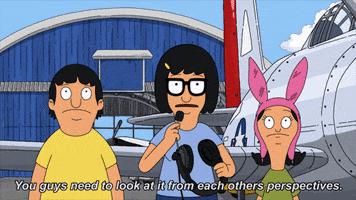As I approach the big 3-0, I’ve been feeling particularly reflective of the past 29 years of my life. In an attempt to find emotional catharsis, I’ve written down important lessons I’ve learnt so far. From there, I’ve listed 5 key career lessons that I wish I knew when I was in my early 20s.
1. “Sit Down, Be Humble.”
More than just lyrics to my go-to song on karaoke nights, it’s also a mantra I remind myself about. Most of my career regrets involve unfounded and inflated ego that I had at the start of my career. Being locked up with myself for the past year (no thanks to lockdown), I learnt that I did not enjoy my own company. This prompted me to reflect a lot on my past decisions, and figure out why I felt a need to feed my ego. I realised the root cause was my insecurities, which translated into arrogance and my inability to be vulnerable with people around me.
With the help of my peers whom I deeply admire (you know who you are), I learnt to be more comfortable with my shortcomings. This in turn allowed me to let down my defenses and openly address my weaknesses. Personally, the most important outcome from this is being able to see the world as something you don’t have to put your defenses up to all the time. Being an active participant in your environment makes life so much more interesting.

2. Don’t Be Afraid To Quit
One of my earliest mentors told me that our careers are solely our own responsibilities and we have to own them. While the thought of it was liberating, it also filled me with silent panic because a few years ago, I could not see a future for myself. Whenever I felt like I didn’t enjoy my work, I was the first to invalidate my own feelings. I was afraid of being labelled as yet another run-of-the-mill millennial who was too idealistic about what a job should bring. It took me a while to come to terms that the job I thought I wanted was in fact, not what I wanted. A lot of us were expected to make decisions about our future when we’re 17 years old, which I think is too much pressure to put on any teenager. At 17, I was young and impressionable - my opinions were mainly shaped by other people’s expectations of me.
Understandably, most people around me were concerned when I wanted to quit my job to join a startup. It was a tough decision because I have so much respect for the companies I worked at. As difficult as it was, it is also the best decision I made in my career thus far. Before I quit my first two jobs, I did my research about the role I was jumping into and had an honest conversation with myself. We shouldn’t be afraid to quit if we’re doing it responsibly.
3. Respond, Don’t React
Responding to situations calmly is one of the common traits of leaders I deeply respect. It’s easy to let your emotions get the better of you when you’re in an uncomfortable situation. Upon reflection, all of the decisions I’ve regretted were made based on fleeting emotions. What you can do when you’re facing this situation is to take deep breaths, and take note of your surroundings, so that you don’t immediately react based on how you feel at the moment. On top of that, you can try meditating to bring mindfulness into your day-to-day life. If none of them work, seek advice on anger management from this guy.

4. Sometimes, The Hardest Thing About A Job Isn’t The Work Itself
I used to think that if I put all my effort into getting good grades, I would excel at work. “It’s all about working hard and getting the job done, right?” Having spoken to close peers and looking back at my own career, I realised that the hardest things about a job were never the technicalities. It was not about learning VLOOKUP in Excel, or formatting a document perfectly in Word and PowerPoint. Instead, some may find themselves dealing with distressing thoughts like:
“What should I do if my assigned supervisor shows no interest in supervising me?”
“What would I do if a peer betrayed my trust? How do I keep working with that person?”
“Why is that manager staring at freshies inappropriately? What can I do about it?”
*Examples given are not based on personal experiences.
I’ve read countless books, but none has prepared me for this. Most discomforts are subtle to the untrained eye. There were many instances when I felt uncomfortable, but I couldn’t understand or pinpoint the exact reason why. I have a constant nagging feeling that something isn’t right, but I ignored it. I wish I paid more attention to my feelings in these situations, and processed them maturely. If left unattended, these feelings can manifest into anger and hinder your ability to focus on what’s important: delivering good work. Hence, I make a conscious effort to enable my team to focus on their work and I am grateful to be working in such an encouraging environment.
5. Have Empathy For Everyone (Even Yourself)
Empathy refers to the ability to sense other people’s feelings. It lets you see things through someone else’s lens, thus enriching the way you experience life. As companies embrace workplace diversity, empathy among employees is important to cultivate a non-toxic work environment. Having a judgmental mindset begets untrustworthiness. I believe a positive working environment should include openness, where everyone is encouraged to speak out. Being candid helps in forming a culture of trust. Rather than shaming others or even yourself for making mistakes, consider these points:
- “What state of mind was that person in when those mistakes were made?”
- “What was that person’s knowledge gap when those mistakes were made?”
- “How can we learn from this and do better?”
Without empathy, the first two questions will not be addressed - making it a missed opportunity in learning how to avoid repeating the same mistakes. The first step in understanding others is showing a genuine interest in them and their concerns. Believe it or not, insincerity is detectable. Being empathetic may not come easy for some, but it goes a long way when it comes to work. Not only it strengthens relationships with your teammates, but it boosts productivity and overall job satisfaction.

All in all, I am grateful for all the opportunities and learning experiences I had throughout my career. I’ll always look back at my learnings and apply them in my current role. As my journey with AdEasy continues, I look forward to new challenges ahead.

